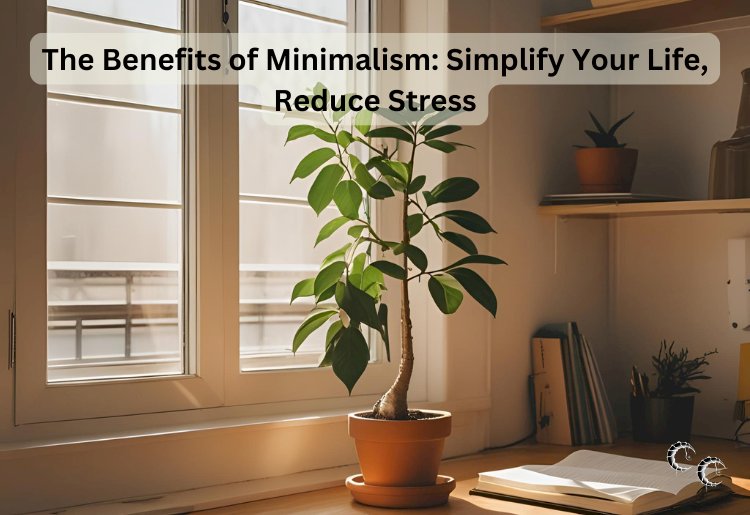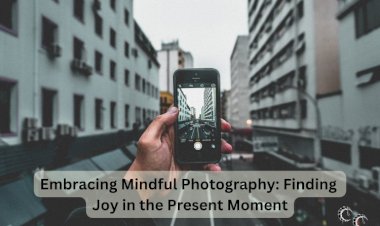The Benefits of Minimalism: Simplify Your Life, Reduce Stress

In today’s fast-paced and consumer-driven world, minimalism offers a refreshing approach to living: focusing on what truly matters and letting go of excess. By simplifying your life, you can reduce stress, find clarity, and create space for more meaningful experiences. Here’s a closer look at how embracing minimalism can transform your life.
What is Minimalism?
Minimalism is not about deprivation but intentional living. It means focusing on essentials, decluttering your space, and aligning your life with your values.
-
Intentional Choices: Prioritize what adds value to your life and eliminate distractions.
-
Living With Less: Avoid unnecessary possessions and commitments that don’t serve your well-being.
-
Mindful Consumption: Choose quality over quantity and avoid impulse purchases.
Benefits of Minimalism
1. Reduced Stress
Cluttered spaces and overpacked schedules can contribute to mental and emotional strain.
-
Decluttered Environment: A tidy, organized space promotes calmness and reduces decision fatigue.
-
Fewer Obligations: Saying no to unnecessary commitments gives you more time to focus on what matters.
-
Clearer Mind: Simplifying your surroundings helps clear mental clutter, improving focus and peace of mind.
2. Financial Freedom
By adopting a minimalist mindset, you can save money and spend it more thoughtfully.
-
Reduced Spending: Fewer purchases mean more savings for experiences or long-term goals.
-
Intentional Budgeting: Focus on buying what you need rather than accumulating excess.
-
Less Debt: A minimalist lifestyle often leads to financial stability and reduced stress about money.
3. Increased Productivity
Minimalism encourages you to concentrate on tasks and goals that align with your priorities.
-
Eliminate Distractions: Fewer possessions and obligations mean less time spent on maintenance and more on productivity.
-
Streamlined Workflow: Simplified systems and routines allow you to focus on meaningful work.
-
Enhanced Decision-Making: Fewer choices reduce decision fatigue, enabling you to make clearer, more confident decisions.
4. Better Relationships
Minimalism helps you prioritize quality time with loved ones over material possessions.
-
Focus on Connection: Spend more time and energy on relationships that matter.
-
Shared Experiences: Prioritize experiences with family and friends over acquiring items.
-
Meaningful Interactions: A less distracted life fosters deeper, more authentic connections.
5. Environmental Impact
Living minimally supports sustainability by reducing waste and conserving resources.
-
Less Consumption: Buying less means contributing less to landfills and pollution.
-
Sustainable Choices: Focus on eco-friendly, durable items rather than disposable products.
-
Support Ethical Practices: Minimalists often choose to support ethical and sustainable brands.
How to Start Living Minimally
1. Declutter Your Space
Start with one room or category, like clothes or books, and decide what to keep, donate, or discard.
2. Set Priorities
Define what’s most important to you—whether it’s health, relationships, or personal growth—and align your life accordingly.
3. Be Mindful of Purchases
Before buying something, ask yourself: Does this add value to my life?
4. Simplify Your Schedule
Evaluate your commitments and let go of activities that don’t align with your priorities.
5. Practice Gratitude
Appreciate what you already have instead of constantly seeking more.
Conclusion
Minimalism is a powerful tool for reducing stress, improving focus, and creating a life filled with intention and joy. By simplifying your possessions, commitments, and mindset, you can uncover what truly matters and live a more fulfilled, stress-free life.
Embrace the minimalist philosophy, and you’ll find that less truly is more.






























